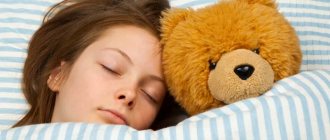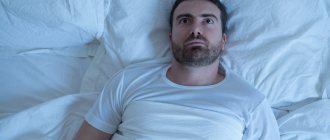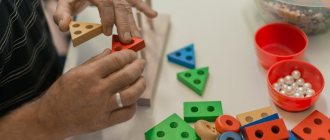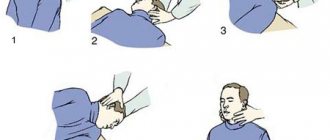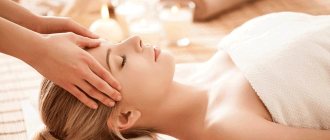12.08.2020
Sleep is one of the most mysterious phenomena about which we still know very little. How does the body recover during sleep? Why does sleep disruption cause serious mental and physiological problems? Where do dreams come from and what do they mean? Scientists, of course, managed to obtain some answers, but most of the questions still remain unanswered.
What is important for us is that sleep is a universal means of recovery, which allows us to remain alert, healthy and, as a result, more productive compared to those who, for one reason or another, do not regularly get enough sleep. Below we will talk about the causes of insomnia, its consequences and how to deal with it at home.
Causes of insomnia
There can be many reasons why you cannot fall asleep at night. More importantly, without enough sleep, you put your body and nervous system at risk. If you have a hard time waking up in the morning, are constantly irritated, and feel tired during the day, you are probably not getting enough quality sleep.
Headache is another consequence of insomnia and sleep disorders. Morning headache is one of the most common. It occurs precisely due to lack of oxygen. Lack of oxygen, in turn, occurs due to the fact that the room is poorly ventilated. If you ventilate the room well using, for example, ventilation, your head will not hurt.
In addition, symptoms of lack of sleep can include loss of appetite, memory loss and constant drowsiness. Simply put, if you're having trouble falling asleep and waking up, you likely need to rethink your sleep schedule.
Ten minutes is enough for a healthy person to fall asleep. If it takes much longer, the following factors are likely interfering:
- Bright light . The screen of a monitor, smartphone, TV or, for example, a desk lamp that is not turned off deceives your natural internal alarm clock, which makes falling asleep much more difficult. To fall asleep quickly and efficiently, you need to turn off the lights and also close the window if it’s day outside.
- Unfavorable microclimate . If the air is bad or stale, it is more difficult for the body to enter a relaxed state, which can also cause insomnia. Ventilate the bedroom, monitor humidity and prevent the appearance of allergens - by following these simple rules, you can fall asleep quickly and soundly at night.
- Food quality . Coffee, alcohol and high-calorie foods prevent the transition to deep sleep. Due to the consumption of foods that irritate the nervous system, the brain continues to work even in a half-asleep state, which causes lack of sleep. Therefore, you need to eat healthy food, not drink and not smoke - it would seem obvious things, but for some reason many people forget about it.
- Excessive load . If you worry about something or play sports right before bed, you won’t be able to fully rest, because distracting thoughts or tense muscles will prevent you from doing so. If you have problems sleeping, we recommend that you engage in vigorous activity in the first half of the day.
- Strong odors . Too bright odors also prevent the body from completely switching off, diverting its attention to the sense of smell. Therefore, in order to fall asleep quickly, do not use excessively irritating air fresheners, perfume, or leave food in the bedroom.
It is important to make going to bed a kind of ritual. Transform your bedroom and bed into a place dedicated exclusively to sleeping. If you watch TV in bed, play games or even read, over time your brain will learn to do all the necessary things first, and only then turn off. Thus, even if you just lie in bed and try to fall asleep, the body will not allow you to do this, expecting its usual actions - watching your favorite TV shows, etc.
Quick ways to help you fall asleep
What to do before bed to relax and prepare for sleep:
- Ventilate the room. Scottish scientists believe that we fall asleep fastest at a temperature of +16-18 degrees. At night, the human body cools down, so it is difficult to sleep in the heat. Cleansing of toxins and relaxation of the body occurs in a cool room.
- Skip a heavy dinner. Eating late starts digestion. The stomach has to work at night when digestive processes are slow. Food is slowly digested, retained in the stomach and small intestine, and toxins are released. This prevents the brain from reaching the deep sleep phase. If you can’t refuse a hearty dinner, then eat 2, or better yet, 3 hours before bedtime and choose “calming” foods: broccoli, honey, milk and other foods with melatonin. This hormone regulates sleep and wakefulness and is found in small amounts in some foods.
- Take a walk before bed. In addition to saturating cells with oxygen, with little physical activity the hormone adenosine is produced. It creates fatigue - what you need for sound sleep. A walk to the store or near home is enough to take your mind off problems and relieve congestion in your muscles.
- Close the curtains and turn off the night light. Melatonin is produced in complete darkness. Blood concentrations begin to rise about 2 hours before you usually fall asleep and increase sharply within an hour if the lights are turned off. That's why we feel sleepy in the evening and have a harder time getting up in the mornings in winter, when it's still dark. Remove light sources before going to bed; in the dark you will fall asleep easier.
- Put down your phone and turn off the TV before bed. This is necessary so that melatonin can be produced normally. It begins to release at about 10 p.m. If you spend half the night watching TV or gadgets, this can lead to melatonin deficiency and changes in circadian rhythms, i.e., a shift in the sleep-wake cycle. It is better to avoid radiation and additional light before bedtime.
Foods with melatonin: salmon, cherries, nuts
How to fall asleep quickly
The main sign of impending problems caused by insomnia is the inability to fall asleep. Simply put, if you lie in bed for a long time, scrolling through any situations or monologues in your head, most likely you have sleep disorders. There are several methods to help you fall asleep without medication. By the way, taking sleeping pills can harm the body if you use them constantly.
What you need to fall asleep quickly:
- Count sheep or any other objects. It would seem a banal method, but diverting attention to monotonous thoughts makes it possible to disconnect from anxious experiences and quickly fall asleep.
- Imagine any familiar object and try to examine it carefully, mentally rotating it and changing the distance to it.
- Dream, or remember a pleasant moment in life. Using this advice, in some cases you can fall into so-called controlled sleep, which you can control at your own will.
- Sit back comfortably in bed, relax and lift your eyeballs slightly under your eyelids. This eye position is considered natural for the deep phase of sleep and allows the body to relax faster.
- Try focusing on the physical sensations, mentally keeping your attention on your fingertips or face. Experts in the study of processes occurring during sleep assure that this life hack also allows you to quickly fall asleep without sleeping pills.
Interestingly, the thoughts or objects that you imagine while freely fantasizing say a lot about your mental state.
Sleep medications
If you have followed various methods but have not figured out how to fall asleep quickly, it is recommended to use medications. However, this must be done carefully so as not to cause addiction. It is best to consult a doctor to select a drug.
What to drink to fall asleep quickly:
- Based on herbs - valerian, motherwort, mint, hops, chamomile.
- Tranquilizers: drugs that depress the nervous system. If your insomnia is caused by extreme stress, this may be the only solution.
- Sleeping pill: affects nerve receptors and stimulates the production of sleep hormones.
- Preparations containing the main sleep hormone: melatonin.
- Vitamins. Often, chronic insomnia develops due to a deficiency in the body of vitamins B and D, microelements - magnesium and calcium.
Sleep depends on air quality
The worse the air, the more difficult it is to sleep. Therefore, most of us try to ventilate the room before going to bed or even sleep with the windows open. Unfortunately, this is not always possible. In cities, the street is usually very noisy and if you open the windows, it will simply be impossible to sleep. In addition, for six months in our country in most regions there is a cold temperature and open windows can cause colds and constant discomfort.
“Fortunately, there is a way out here too. To sleep in silence, while keeping the air fresh, you need to install supply ventilation, which will continuously provide air flow from the street.”
Fresh air has a soporific effect, which has long been known in the medical community - in hospitals, oxygen is used to put patients to sleep. Therefore, the presence of fresh air ventilation guarantees that you will fall asleep quickly and have deep sleep.
How does the supply air purifier work:
- The purifier provides a continuous flow of air, which allows you to maintain high oxygen levels. If this does not happen, the brain experiences oxygen starvation, leading to poor sleep quality and headaches in the morning. In addition, high-quality ventilation allows you to get rid of such problems as long and painful falling asleep. The influx of fresh air allows you to fall asleep much faster, and the sleep itself ceases to be sensitive, becoming deeper.
- If you install a ventilator, you do not need to open the windows. This allows you to get rid of the so-called peak noise load, which is the main reason that the brain does not fall into deep sleep. That is, we can get used to uniform noise, but if the sound changes the volume level (for example, a car passes under the windows), we are constantly in a semi-drowsy state, unable to fully fall asleep. Supply ventilation allows you to solve this problem.
If the room you sleep in is well ventilated and you don't have to open the windows, your sleep will be deep and restful. A few hours will be enough for you to fully recover and feel fully rested. After several days of good sleep, your health will improve and your performance will increase significantly. That is why, with poor sleep and insomnia, it is important to take care of proper ventilation.
A small example of how fresh air makes sleep deep and quality. If you have ever lived outside the city in a wooden house, you know how well you sleep in it. The secret is in the fresh air that enters the house through the walls, because... wood can “breathe”. By installing a supply air purifier, you can create the same conditions as in your dacha, ensuring a restful and deep sleep, no matter where your home is located.
Daily regime
It is recommended to go to bed at the same time.
This rule must be followed even if you have to wake up earlier than usual. The fact is that the body gets used to a certain circadian rhythm, so forcing yourself to go to bed earlier does not make sense - in most cases you will toss and turn in bed without sleep. Therefore, to get enough sleep, go to bed at your usual time. If insomnia does not go away, be sure to consult a specialist for further recommendations and selection of medications. Products for normalizing sleep can be purchased at Stolichki pharmacies.
Supply ventilation device
Supply ventilation is a regular pipe through which street air is supplied to the room. To ensure the most stable and uniform flow, a fan is installed in the system. Moreover, most systems can change the air supply speed, which allows you to create a comfortable microclimate in the room.
The air conditioner does not solve the problem of fresh air and oxygen, since it cools the air that is already in the room, so it is useless for deep sleep and falling asleep quickly.
What prevents you from falling asleep
- Extraneous sounds. The stomping of neighbors, the TV playing in the next room, car horns outside the window, dog barking - these are just a few sources of noise that clearly do not contribute to falling asleep quickly. The fact is that in this phase of sleep the body responds sensitively to external stimuli, and any sharp or loud sound can wake you from the state of half-asleep that precedes falling asleep.
- "Heavy" thoughts. Troubles at work, worries about children, problems in the family - all these worries pop up at the most inopportune time, late in the evening. Of course, they interfere with sleep, since during this period of the day the brain should relax, clear itself of life’s worries, and disturbing thoughts, on the contrary, “excite” it and force it to look for a way out of the current situation.
- Bright light. It's not just about street lights and advertising signs that shine through windows. No less harmful are the screens of laptops and smartphones, which we use to scroll through our VKontakte or Instagram feeds before going to bed - this habit should be abandoned. In addition, late in the evening it is better to turn off chandeliers and overhead lighting and leave only the warm, dim light of night lamps.
- Physical exercise. Do you want to quickly fall asleep and stay asleep? Avoid going to the gym and doing active sports in the evenings. The optimal replacement would be a light jog, swimming or (best of all) a simple walk in the fresh air.
- Alcohol and high-calorie foods. Alcoholic drinks “invigorate” the nervous system, and heavy protein foods activate the body’s strength to digest it. On the other hand, after a hearty feast and large doses of alcohol, a person can quickly fall asleep, but this still cannot be called complete sleep.
- Unhealthy microclimate. If the room is not ventilated, this affects both the duration of falling asleep and the quality of sleep. Stale air, stuffiness, and high humidity affect physical and mental health, and in order to fall asleep easily, you need to relax your body and put your emotional background in order.
When is sleep disorder especially dangerous?
After just three completely sleepless nights, a seemingly healthy person may experience delusions, hallucinations, attacks of acute psychosis, and epileptic seizures. Seven days spent without sleep ends in guaranteed death. It has long been established that symptoms of insomnia are independent risk factors for heart disease and stroke.
In some cases, sleep disturbance is not even a bell, but a bell signaling a mortal danger to life. Gleb Lutokhin says:
“A strong young man, 28 years old, complains of snoring and sudden cessation of breathing during sleep. At night, the wife had to push her husband away more than 40 times an hour, restarting the breathing process. This is a case of central apnea - a pathology in which the medulla oblongata stops giving the body the command to inhale. Such situations very often end in the death of the patient. As it turned out, the patient had a congenital organic pathology in which the vertebral artery compresses the respiratory center of the medulla oblongata. We have selected the appropriate ventilation option. For the rest of his life, the patient will have to sleep with a device that will control his breathing and breathe for the owner in those moments when he stops doing it on his own. But the patient sleeps well, does not get tired during the day, and has even lost weight.”

